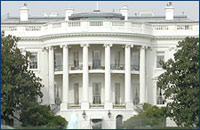Reparations for “Terrorists”?
 Should victims of human rights violations with alleged or certain ties to groups that use terrorism receive reparations? This complex and sensitive dilemma has begun to arise in countries implementing reparation programs pursuant to the recommendations of their truth and reconciliations commissions.
Should victims of human rights violations with alleged or certain ties to groups that use terrorism receive reparations? This complex and sensitive dilemma has begun to arise in countries implementing reparation programs pursuant to the recommendations of their truth and reconciliations commissions.
Reparations law has special relevance to the transitional justice paradigm, as countries seek to respond to widespread human rights abuses — situations in which the line between victim and perpetrator often blurs. New case studies reveal the serious challenges of implementing administrative plans of reparations that first require that recipients be qualified. While some issues are purely technical and logistical, others — those that hold the potential to generate new forms of harm and even new rights violations — beg further discussion and clarification. Certainly, as the recognition of the right to reparation grows, so do the legal issues pertaining to its practical application. In the realm of international human rights law, new cases offer opportunities to continue defining the parameters of this right, as noted in an ever-growing jurisprudence with respect to remedies law.

